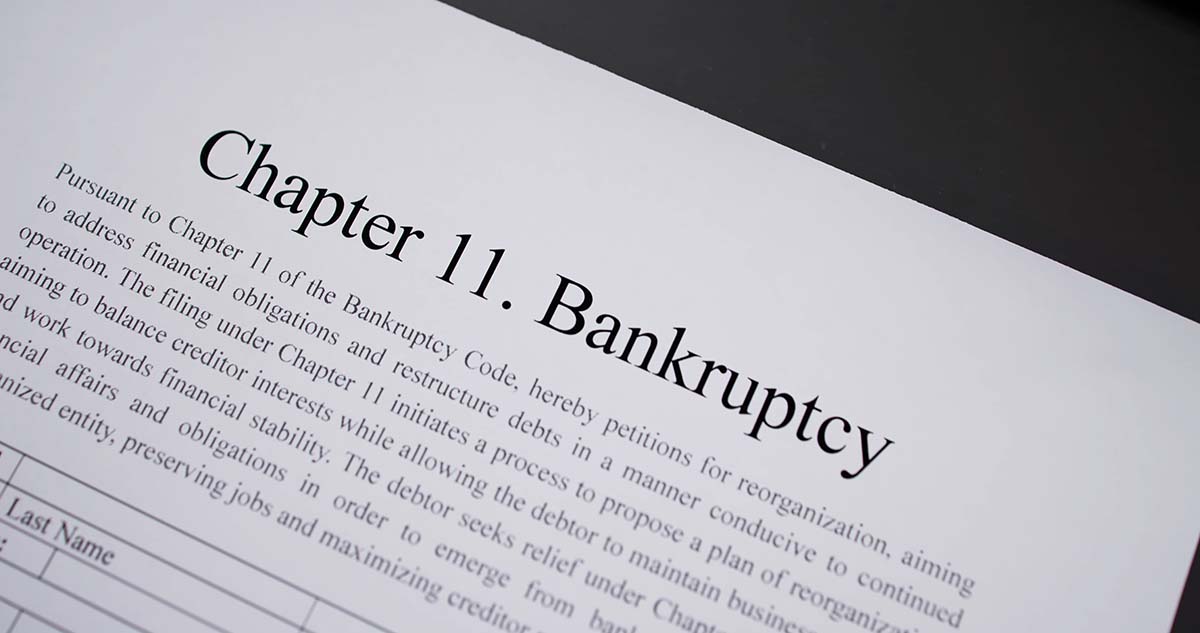Chapter 11 Bankruptcy
Chapter 11 bankruptcy, also known as reorganization bankruptcy, is a legal process that allows distressed businesses to restructure their debt and regain financial stability. The primary purpose of Chapter 11 is to provide struggling businesses with an opportunity to reorganize and continue operating while repaying creditors over a period of time.
One of the key benefits of Chapter 11 bankruptcy is that it provides a chance for businesses to reduce their debt burden by developing a plan to repay creditors in a reasonable and affordable manner. This process enables the business to negotiate with creditors, to seek favorable terms or even a reduction in the amount owed, including:
- Lenders
- Suppliers
- Vendors
It also allows the business to terminate contracts or leases that may be hindering its ability to generate profits. Chapter 11 bankruptcy is available to various types of businesses, including corporations, partnerships, and limited liability companies (LLCs).
Both small and large businesses, whether publicly or privately owned, are eligible to file for Chapter 11 if they are experiencing financial distress and need to restructure their debt obligations.

Eligibility Criteria for Filing Chapter 11 Bankruptcy
The Bankruptcy Code governs the process of filing for bankruptcy protection and offers a way for debtors to address their overwhelming debts while still remaining in control of their assets and operations.
Before pursuing Chapter 11 bankruptcy, businesses must understand the eligibility criteria that must be met in order to qualify for this type of bankruptcy filing.
Filing Fee
The filing fee for a Chapter 11 bankruptcy application includes a case administrative filing fee of $571 as of 2023. This fee is required to be paid at the time of filing the bankruptcy application. [1] This is specifically designated for administrative expenses incurred during the bankruptcy process, such as photocopying, mailing, and other administrative tasks, and is subject to change.
Additional fees may apply when filing for Chapter 11 bankruptcy as well. These fees can include fees for services such as conversion of the bankruptcy case, filing amendments, or requesting specific court orders. The exact amount and type of additional fees will depend on the circumstances of each individual bankruptcy case.
Steps Involved in Filing a Chapter 11 Bankruptcy Petition
From initial preparations to the final confirmation of the reorganization plan, each step plays a role in the overall success of the bankruptcy proceedings.
Consultation with An Attorney
The first step in filing a Chapter 11 bankruptcy petition is to consult with a knowledgeable and experienced bankruptcy attorney. This initial consultation provides an opportunity to assess the financial situation, evaluate the viability of a Chapter 11 bankruptcy, and determine the best course of action.
The attorney will also guide the debtor in gathering the necessary paperwork, financial statements, tax returns, and other supporting documents required for the bankruptcy filing. With their expertise, the attorney will help the debtor prepare a strong case and ensure compliance with the legal requirements.

Preparation and Filing of The Petition
Once the necessary documents have been collected, the attorney will assist the debtor in preparing and filing the Chapter 11 bankruptcy petition with the appropriate bankruptcy court.
This step involves providing comprehensive information about the debtor’s financial situation, outstanding debts, assets, and liabilities, along with a disclosure statement outlining the debtor’s plan for reorganization. The petition will also include a list of creditors, a schedule of assets and liabilities, and a statement of financial affairs.
Automatic Stay and Creditor Notification
Upon filing the Chapter 11 bankruptcy petition, an automatic stay goes into effect. This means that all collection actions against the debtor, including lawsuits, foreclosures, and creditor harassment, must immediately cease.
The court will issue notices to all creditors listed in the petition, informing them of the bankruptcy filing and providing instructions for filing a proof of claim. These notifications ensure that all creditors are aware of the proceedings and have the opportunity to participate in the bankruptcy case.
Formation of the Creditors' Committee
In larger Chapter 11 cases, a committee of the debtor’s creditors may be formed. This committee represents the interests of the entities that are owed money and they will negotiate with the debtor, proposing modifications to the reorganization plan.
Reorganization Plan
Businesses filing for Chapter 11 bankruptcy develop a plan of reorganization, which acts as a contract between the debtor and its creditors. This plan outlines the proposed changes to the business’s operations, finances, and debt repayment strategy. It aims to improve the business’s profitability and provide a realistic framework for debt repayment, safeguarding the interests of both the debtor and the creditors.
Before the plan can be put into action, court approval is required. The bankruptcy court evaluates the feasibility of the plan and ensures that it complies with all relevant laws and regulations. This court approval is crucial as it ensures that the proposed plan is fair and achievable, protecting the rights of all parties involved.
Once the plan of reorganization receives court approval, it is presented to the creditors for a vote. Creditors have the opportunity to voice their support or rejection of the plan, considering how it will impact their position and potential repayment. This voting process allows the creditors to actively participate in the restructuring process and collectively decide the future of the business.
For assistance filing Chapter 11 bankruptcy, contact Frego Law today.

FAQs
The timeline for resolving Chapter 11 cases can vary greatly, with some being resolved in a few months and others spanning five years or more. [1]
The cost for filing a motion to reopen a Chapter 11 case is $1,167. [1]
During Chapter 11 bankruptcy, the company’s assets are generally protected from immediate liquidation. The debtor in possession retains control of the assets and continues business operations but under the oversight of the bankruptcy court. [2]
Sources:
[1] Bankruptcy Court Miscellaneous Fee Schedule. (n.d.). United States Courts. https://www.uscourts.gov/services-forms/fees/bankruptcy-court-miscellaneous-fee-schedule
[2] Norris, E. (2022, June 21). Chapter 7 vs. Chapter 11: What’s the Difference? Investopedia. https://www.investopedia.com/ask/answers/differences-between-chapter-7-and-chapter-11/




